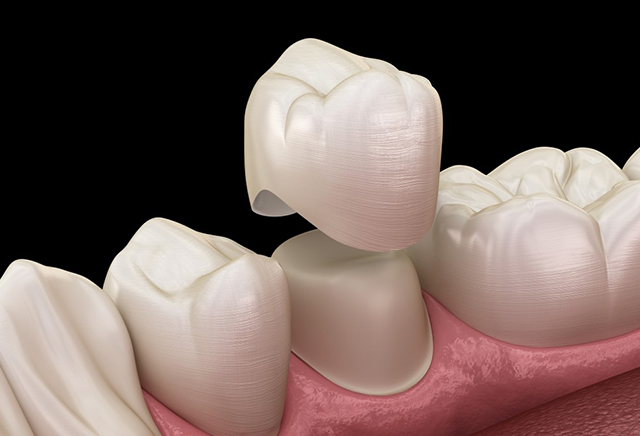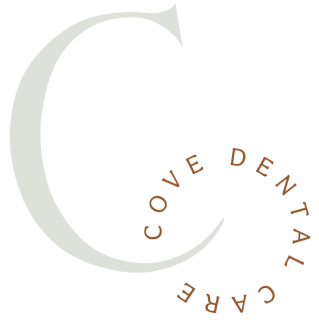Greer:

Reinforcing Your Smile's Strength In Greenville, SC
What to Expect During Your First Visit
- Take X-rays of your mouth and surrounding bone.
- Reshape the damaged tooth.
- Take an impression of your tooth and send it to a lab to create your custom, permanent crown.
- Place a temporary crown while the permanent crown is made; this usually takes two to three weeks.
- Remove the temporary crown.
- Make sure the permanent crown matches your natural tooth shape, size, and color.
- Cement the new crown in place.
Veritility of Dental Crowns
Dental crowns are one of the most versatile tools a dentist has at their disposal. They aren’t only good for many restorative issues but can also address cosmetic problems. Discolored teeth are a problem many people face. Sometimes, traditional whitening methods will not treat the discoloration. You can’t bleach teeth that are dead due to trauma or teeth that have stains due to medication. A dental crown can fully cover these teeth, and we can match their color to the shade you desire.
A misshapen or disfigured tooth is not only a cosmetic problem; it can also impact your mouth’s functionality. It may be hard to chew food or change the way you speak. The crown covers a tooth, and you get back the full functionality of the tooth. This is also the case if you have a tooth that’s been severely damaged or decayed. The crown holds your tooth together and replaces any broken parts.
One of the most common uses for a crown is to stabilize a tooth. When we perform a root canal procedure, we remove the tooth pulp and replace it with another material. We seal the tooth, but a dental crown ensures functionality and further protects the tooth from decay. Crowns also stabilize a tooth that serves as an anchor for a dental bridge. Teeth can wear down without fortification and are more susceptible to decay and infection.
Lastly, crowns are the most common choice to complete a dental implant restoration. A custom dental crown makes the restoration feel and look the most like a natural tooth.
More About Dental Crowns
Dental crowns, a cornerstone of restorative dentistry, play a pivotal role in preserving and enhancing the health and aesthetics of damaged or compromised teeth. These versatile prosthetic devices offer a durable and natural-looking solution for a variety of dental issues, from strengthening weakened teeth to improving their appearance. In this exploration, we delve into the world of dental crowns, uncovering their significance, materials, placement procedures, benefits, and the transformative impact they have on oral health.
Dental crowns, often referred to as “caps,” are custom-made coverings that encase damaged or discolored teeth, restoring their structural integrity and functionality. Beyond the functional aspect, dental crowns also contribute to the overall appearance of a smile. They are utilized in a range of scenarios, including protection, restoration of teeth with extensive decay or fractures, addressing cosmetic concerns, and reinforcing teeth that undergo root canal therapy.
Dental crowns are crafted from a variety of materials, each with its unique properties and advantages. Porcelain crowns mimic the appearance of natural teeth, making them an ideal choice for front teeth. Metal crowns, typically made of alloys like gold or silver, offer exceptional durability and strength, often chosen for back teeth. Porcelain-fused-to-metal (PFM) crowns combine the strength of metal with the natural appearance of porcelain. All-ceramic crowns, crafted entirely from ceramic materials, provide a highly lifelike appearance suitable for both front and back teeth.
The process of receiving a dental crown involves several steps. During the initial consultation, the dentist assesses the tooth’s condition and determines if a crown is necessary. Tooth preparation involves reshaping the tooth to create space for the crown. An impression of the prepared tooth is taken to ensure the crown fits snugly and aligns with the patient’s bite. While the permanent crown is being fabricated, a temporary crown is placed to protect the prepared tooth. Skilled technicians craft the custom crown according to the patient’s unique specifications, and once ready, the permanent crown is bonded to the tooth using dental cement.
Dental crowns offer a plethora of benefits beyond mere aesthetics. They strengthen weakened or damaged teeth, enhance overall oral functionality, and ensure a natural-looking smile. Depending on the material chosen, dental crowns can withstand the forces of everyday chewing and biting for years, while allowing dentists to preserve as much of the natural tooth structure as possible.
Maintaining dental crowns involves adhering to good oral hygiene practices. Regular brushing and flossing are essential to prevent plaque buildup and maintain the health of the surrounding gum tissue. It’s important to avoid using teeth as tools or biting into exceptionally hard objects that could damage the crown. Scheduled dental visits allow dentists to monitor the condition of the crown and address concerns promptly.
In conclusion, dental crowns exemplify the harmonious marriage of function and aesthetics in modern dentistry. By restoring compromised teeth to their former strength and beauty, crowns offer patients a chance to regain confidence in their smiles and oral health. With a range of materials and techniques at their disposal, dental professionals can tailor crown solutions to individual needs. From porcelain to metal, these prosthetics stand as testaments to the advancement of dental science, showcasing the transformative power of modern restorative dentistry.
